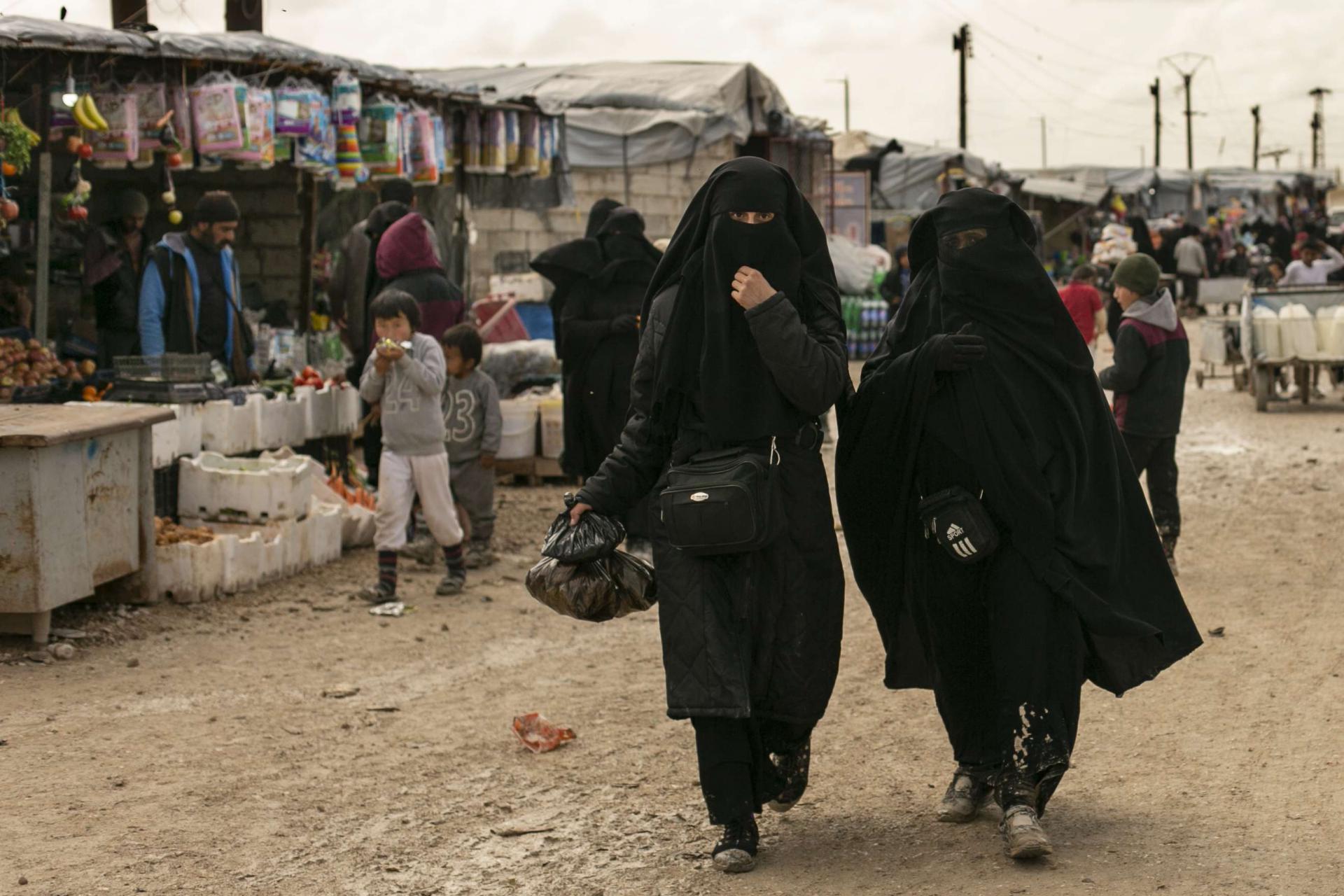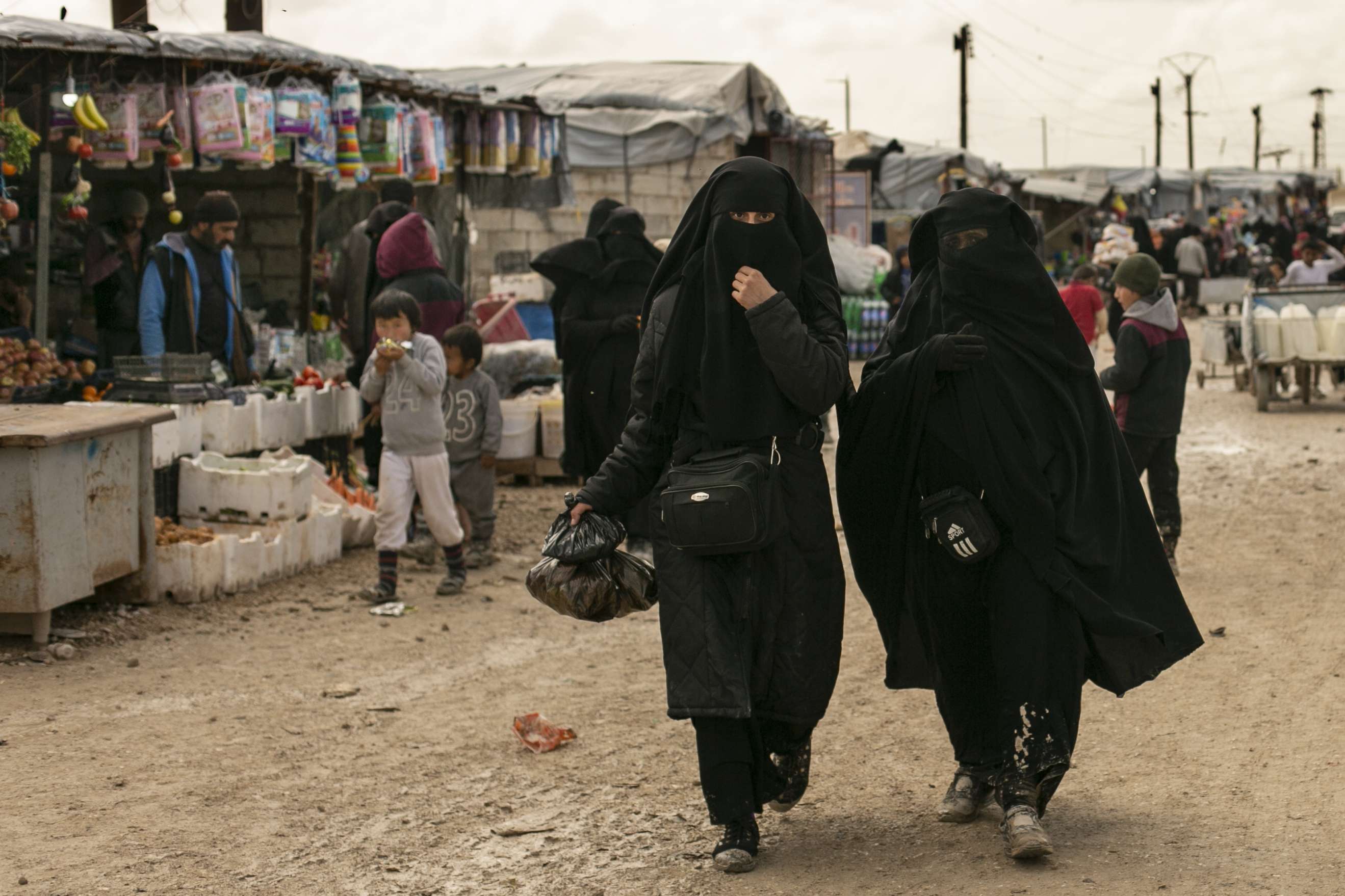Turkey downplays IS prison breaks in north Syria
ANKARA - Kurdish authorities in Syria said five detained members of the Islamic State group managed to escape from a Kurdish-run prison in northeastern Syria on Friday after Turkish shelling hit the area.
The detainees escaped from a prison in Qamishli city, Marvan Qamishlo said. The prison break comes amid fighting in northern Syria between Kurdish and Turkish-led forces and fears that the violence in the region could lead to a mass prison break of Islamic State fighters held in Kurdish-run prisons.
Only hours after the prison break, IS claimed responsibility for a car bomb attack in Qamishli. IS issued a statement through its media arm saying its fighters were behind the blast, which a war monitor and Kurdish authorities said left three dead and nine wounded, both civilians and members of the security forces.
The Kurdish administration had said on Thursday that Turkish forces had shelled a jail holding IS prisoners of more than 60 nationalities in Qamishli, calling it a "clear attempt" to help them escape.
Another Kurdish official said the Jerkin facility, another nearby prison, had also come under regular Turkish fire, increasing the chances of a breakout there too.
The incidents come as the prospect of mass breakouts is causing deep concern among many foreign powers, who fear the return on their soil of IS fighters and the resurgence of the jihadist group in the region.
Qamishli lies well inside Turkey's proposed 30-km "safe zone" in northern Syria, but it is also in the far east of the country. For now, Turkey's land incursion appears focused on the two towns of Ras al Ain and Tel Abyad, much further west.
Turkey has said it believes more than 1,000 Islamic State fighters are being held in the swathe of northeast Syria its troops are set on capturing, most of them foreign jihadists from Europe and the United States.
However, that number is lower than estimates given by both the Syrian Kurds and the US as to the number of Islamic State fighters who could escape from prison due to the Turkish assault. The US Congress and Pentagon have warned that the Islamic State group could easily make a comeback if the SDF is forced to free some 11,000 IS prisoners while they battle Turkey.
The SDF holds Islamic State prisoners in detention centres across the wider Kurdish-held northern region and have said they cannot guarantee their continued detention while they confront Turkey's incursion.
Islamic State leader Abu Bakr al-Baghdadi, who remains at large, called on his supporters last month to attack the camps and set the detainees free. Al-Baghdadi himself was a former prisoner in Iraq, and jail breaks played a major role in the growth of IS after US and Iraqi forces had nearly eliminated an earlier incarnation of the group a decade ago.
The exact locations of the detention centres in Syria have not been disclosed. A Turkish security official said Ankara believed there were several in the 30-km (20 mile) deep border area where it says it will establish a "safe zone" under its control.
"It is estimated that there are approximately 1,200-1,500 Islamic State members in buildings being used as prisons inside the region where Turkey is carrying out its ... operation," the official, speaking on condition of anonymity, said.
He said Turkey had not received official notification, but cited information "from various sources in the field" saying the prisoners included large numbers of foreign fighters from the United States, France, Germany and Belgium.
"The foreign terrorist fighters will not be released," the official said. "However, there will also be initiatives to send them back to their countries of origin."
He did not say how Turkey could ensure that the detainees remain in captivity in the event of fighting or shelling around the prisons.
2000 foreign fighters
A US official said there are currently 30 detention centres holding Islamic State prisoners across northeast Syria. He said the centres hold 11,000 Islamic State detainees of which at least 2,000 are foreign fighters.
"For now the ... prisons remain and they are being guarded by the SDF. There has been no change there," he said.
The US and the SDF have warned that the Turkish incursion could cause prison breaks throughout the wider northern region and not just in the 30-km deep stretch that Turkey has earmarked for its "safe zone".
The Kurds say their forces are stretched thin as they send reinforcements to the north to defend against the Turkish army. They have also halted operations against IS, which continues to stage attacks in both Syria and Iraq.
Turkey dismisses these concerns, saying it has assumed responsibility for the fight against the terrorist group. Turkish President Tayyip Erdogan's communications director said that US President Donald Trump, in a Sunday phone call which appeared to pave the way for Turkey's offensive, agreed "to transfer the leadership of the counter-Islamic State campaign to Turkey".
Ankara insists, despite international fears to the contrary, that there will be no let-up in the campaign against the group.
"Every aspect of Daesh (Islamic State) - countering Daesh terrorism, dealing with prisoners, and women and children - Turkey will do it best like it has before and will do it in Syria too," Foreign Minister Mevlut Cavusoglu said.
"If those camps or prisons are in the safe zone, we are responsible. I'm not responsible for Daesh camps in the south of Syria," he told a group of journalists in Ankara on Thursday.
"The US and others made it clear they will be staying in the southern part...," he said. "So it will be under the Americans' responsibility."
Trump, facing bipartisan backlash in Washington over his decision to withdraw US troops from northern Syria, has emphasized that the United States finally defeated the Islamic State jihadists early this year and needs to get out of Middle East conflicts.
Nevertheless, in a phone call on Thursday with Turkish Defense Minister Hulusi Akar, US Defense Secretary Mark Esper reiterated that the United States opposes Turkey's assault on the mostly Kurdish region because it risks a reversal of the gains made by the coalition fighting to eliminate the Islamic State group, the Pentagon said in a statement.
Esper "strongly encouraged Turkey to discontinue actions in northeastern Syria," it said.
"While the secretary reaffirmed we value our strategic bilateral relationship, this incursion risks serious consequences for Turkey," the statement said.
Esper told Akar that halting Turkey's incursion would provide room for negotiations to "find a common way to deescalate the situation before it becomes irreparable."
Western countries, including the United States, have refused to repatriate citizens who traveled to the Middle East to join IS, fearing they may not have enough evidence to convict them in criminal courts.
Al-Hol camp
The risks posed by the Turkish invasion are starkly apparent in the sprawling al-Hol camp in northeastern Syria, where Islamic State wives and widows have set up special courts, stabbed to death at least two people accused of apostasy and wielded knives and pistols in clashes with their Kurdish guards.
The al-Hol camp is some 50 kilometers from the Turkish border, outside the "safe zone" Turkey plans to set up in northern Syria. But as the fighting worsens, there is a heightened risk that large numbers of detainees could escape.
"With increased SDF vulnerability, SDF control of al-Hol is likely to weaken and they will not coordinate with Turkey," said Lina Khatib, head of the Middle East and North Africa Program at Chatham House, a London-based think tank. She said the SDF is already struggling to maintain order and that IS is likely to exploit the chaos unleashed by the Turkish invasion to mobilize prisoners.
The Islamic State group lost its last foothold of territory in March, when the Syrian Kurdish forces captured the eastern village of Baghouz with US support.
But inside the overcrowded and squalid al-Hol camp, the group's violent ideology is alive and well, and a new generation is being indoctrinated. The International Committee of the Red Cross says the more than 40,000 children in the camp "have experienced more violence, trauma and displacement in their short life than any of us can imagine."
Female IS members have turned one of their tents into a court administering the group's harsh interpretation of Islamic law. Last month, they found a 16-year-old girl guilty of apostasy. After the verdict was announced, women pulled knives from their all-enveloping black robes and stabbed her repeatedly. Kurdish guards evacuated her to a clinic where she later died, according to Abdul-Qader al-Ofeidly, commander of the Kurdish police force known as Asayish, which guards the camps.
He said she was one of several people attacked or killed by fellow detainees. A Syrian man with an amputated leg who moved about on crutches was also stabbed to death by female detainees after being accused of apostasy, the commander said.
On Oct. 1, police stormed a tent and rescued two women who had been sentenced to die and were about to be stabbed to death, he said, adding that IS supporters fought back with knives and pistols. He said another raid in September uncovered hand grenades and the body of a woman who was killed by other detainees and has yet to be identified. He said the foreign women are the main threat in the camp and echoed calls by Kurdish leaders for the detainees' home countries to take them back.
"The situation in al-Hol camp is deteriorating sharply as Daesh militants have stepped up their regrouping efforts through women in the camp," SDF spokesman Mustafa Bali said, using an Arabic acronym for the extremist group. "This is going to be very dangerous in (the) future unless governments take responsibility for their citizens."
Abdul-Karim Omar, who acts as foreign minister in northeastern Syria's Kurdish-led administration, says al-Hol is a "ticking bomb."


